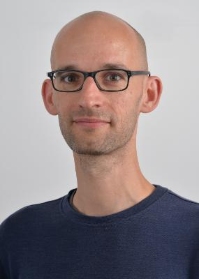Meet the Academic - Felix Fischer
In this blog post, you will have a chance to meet Dr Felix Fischer, Lecturer in Optimisation/Operations Research at the School of Maths. We have asked him to tell us more about his research and mathematical interests, as well as the things he enjoys the most about working at Queen Mary University of London. To anyone wanting to study BSc Mathematics, he recommends making the most of the interactive aspect of university and he explains why asking questions is always a good thing.

What do you like about working at the School of Maths?
Interactions at the School, with both colleagues and students, always feel very friendly and personal. I have had many positive interactions at other universities I have worked at, but what is special about the School of Maths is that here they happen among a fairly large group of people and not just a few members of a research group or a few individuals sharing an office. Two aspects of Queen Mary that distinguish it from any other university I know and make me excited about working here are the diversity of its student population and its ties to the local community.
Tell us about your teaching style at Queen Mary
In all my teaching activities, from large lectures to small-group tutorials and one-to-one supervision, I do what I can to be approachable. No matter how good you are as a teacher, there always comes a point where the best way for a student to make progress is to ask a question. I want to make sure that students feel that they can ask for help or clarification whenever they think it might be helpful.
What aspect of mathematics are you most interested in?
My work is in the area of mathematical optimisation, where the goal is to find the "best" among a set of possible solutions. I am specifically interested in settings that involve self-interested individuals, such as when choosing a solution we have to make sure that individuals cannot cheat to gain an advantage. An example of such a situation is an auction, where we want to make sure that an object being sold goes to the individual who wants or needs it the most but also that individuals do not lie to us about how much they want or need the object.
Tell us a bit more about your research.
I currently work on questions related to the assessment of peers. We ask for example how a group of individuals can choose someone from their midst to receive a prize, or if and how it is possible for students to mark other students'coursework (or even their own).
Any advice for students wanting to pursue mathematics at Queen Mary?
I think it is important for students to understand the difference between school and university, both with regard to mathematics and more generally. Mathematics at university level is a very interactive subject, and when trying to make sense of abstract concepts and techniques, it can be really helpful to discuss them with others. When students in any subject come to university, they are often told that they are now responsible for their own studies. That should not mean, however, that they have to get through their studies without asking questions or without asking for help. From my experience, students who ask many questions often get the most out of their studies. One reason why Queen Mary is such a great place to study mathematics is that many of my colleagues go out of their way to help students succeed. Ultimately, it is a student's responsibility to know when there might be a problem and to ask for help.